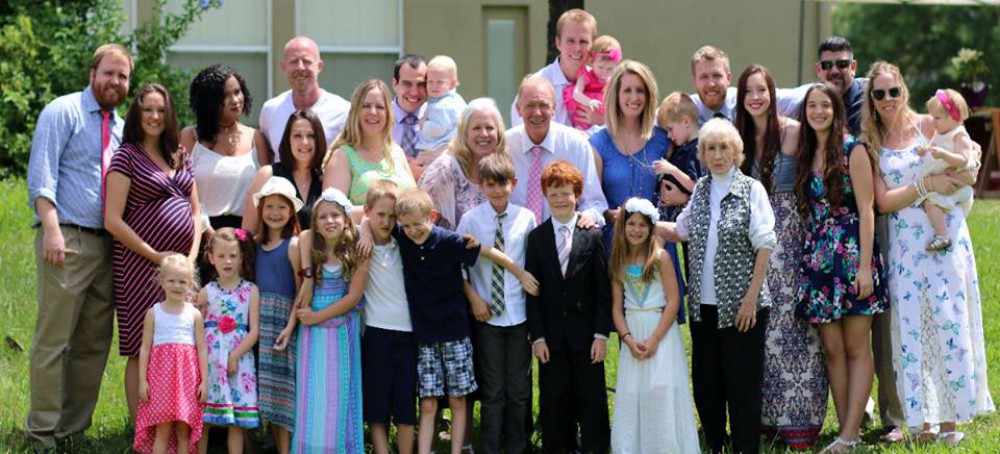Yesterday I introduced you to Shelly and Deb; longtime friends whose relationship was challenged by differences in how they approached being well known by one another. Both were godly women who cherished one another and wanted to enjoy a growing friendship. You can read more about them here.
One of the things Shelly struggled with was assuming anything she shared about her challenges with her husband, Ben, was okay. After all, surely Deb knew Shelly loved Ben, and she certainly needed a friend in whom she could confide, right?
Deb, however, needed to learn that only saying positive, kind things about someone (in her case, her unfaithful ex-husband) isn’t an automatic anecdote to gossip. How could she receive genuine help and benefit from the compassion and counsel of others if she was unwilling to honestly disclose the pain and temptations to anger that his adultery produced? Could others, including Shelly, enter in to her single motherhood world when she refused to share her worries, frustrations and loneliness?
Ken Sande, author of The Peacmaker, defines gossip as, “To betray a confidence or to discuss unfavorable personal facts about another person with someone who is not part of the problem or its solution. Even if the information you discuss is true, gossip is always sinful and a sign of spiritual immaturity.”
Shelly began to understand that her unbridled comments about Ben were too often motivated by a sinful desire to gain sympathy and a desire to vent her marital frustrations. The Lord surprised her with the self-knowledge that she had rarely invited Deb to be a part of the solution to the problems between she and Ben; therefore, Deb was merely a sounding board, not a solution provider.
But were Shelly’s comments always gossip? God used Deb to assure her friend that while she could see roots of bitterness and gossip in Shelly’s heart, there were times when compassionate affection for Ben came through. She reminded Shelly of times her tears were over the state of Ben’s soul, not just his lack of care for their family.
God is always concerned most about our hearts, and not just our words. The fact is Deb started seeing that her unwillingness to talk about her ex-husband was often motivated by embarrassment (“People will think I’m foolish for falling in love with someone like him“), self-protection (“Talking about this will be too painful so I just need to keep this to myself”), or shame (“It’s probably my fault that he cheated because I wasn’t a good enough wife”). These quiet heart issues could be just as personally destructive as Shelly’s bitterness, sinful anger and complaining. Deb’s heart issues were neatly tucked away. Shelly’s were loud and clear. But both women needed God’s help.
Navigating these kinds of waters requires wisdom that can only come from above. While the Bible is clear that gossip is sin (see ), it isn’t clear on whether a person is gossiping in every situation where concerns or perceptions about someone are shared that reflect negatively on him or her.
Here are some questions I’ve found helpful to ask myself:
- Would the person I about whom I am about to speak/have spoken be hurt by my words?
- Do I desire help to work through the difficulties with this person? Or am I simply looking for sympathy?
- Am I as eager to see the way(s) I have contributed to this breakdown as I am for him/her to see their responsibility?
- Does the person I am talking to/planning to talk to have the Christian maturity to understand there are two sides to this issue? Am I willing for my friend to go to the person I’m discussing to ask for their perspective after hearing mine? (Even if talking to the other person is impossible or unwise for any reason, what would I think if it was possible?)
- Is my motive for talking about this person redemptive?
Please know that there are times when these considerations don’t need to be at the forefront. Abuse, for example, requires open disclosure of another’s sin to a wise and compassionate friend or counselor without concern about putting someone in a bad light. What this week is about is not those situations. Rather, I’m talking about the normal every day stuff of doing life with people who are just as flawed as you and I.
Recently, I talked to a friend who was hurting over a young adult child’s rebellious attitudes and actions. She honestly communicated her frustrations, fears and concerns. She disclosed some painful decisions her child had made and was clearly anxious about what the future may hold. Yet her intense love for her child came through loud and clear. We cried together, then prayed. Did she share some unfavorable things? Yes. Was I aware that her child would likely have a different perspective to share? Yes. Was God’s word dishonored by my friend’s speech? I don’t think so. Her love, care for and eagerness to acknowledge her child’s gifts and strengths came through, too.
Having a hard time figuring all this out? Wishing there was a list of do’s and don’ts you could follow to know when honesty has bled into gossip?
Me, too.
But this good news is this. The Holy Spirit lives inside us and will govern our temptations or convict us of sin. He is faithful and His sheep know His voice. Unless our conscience is seared and we’ve hardened our hearts to the gift of conviction, He will let us know when bitterness or fear of anger bubbles up from out hearts and out of our mouths.
And hopefully we’re well known enough by others to get help along the way. After all, being well known includes our sins.









